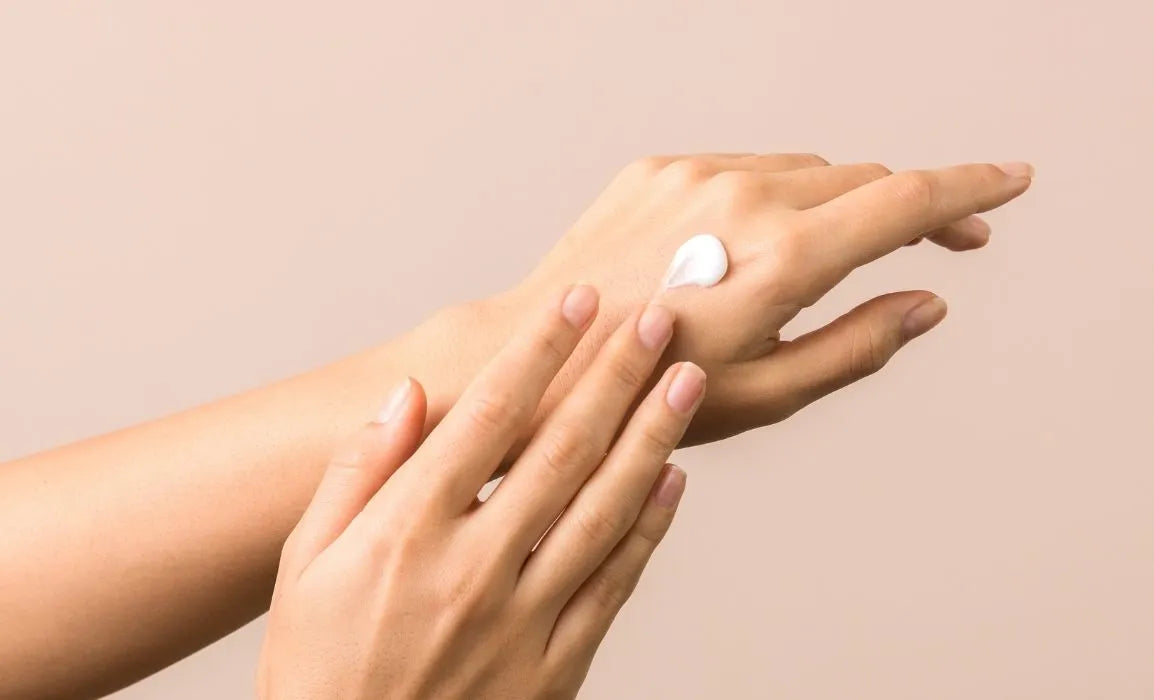Caprylyl Glycol in skincare

Introduction
Caprylyl glycol is an embedded component used commonly as a skin conditioning agent and is plant-derived or synthetic in nature. It is a humectant and thus can attract and retain moisture to the skin. Due to the structure and surface activity of caprylyl glycol, it is also capable of modifying the viscosity and stability of emulsion products. It is fairly insoluble in water and is mainly used in conjunction with other emulsifiers in moisturisers and other skincare products.
What is caprylyl glycol?
Caprylyl glycol is a humectant which incorporates water into the deeper layers of the skin. It is alcohol-derived from a fatty acid. Hydrating agents are common in other sources of hydration to boost their function. As an ingredient, caprylyl glycol is derived from an alcohol but maintains hydrating features. Other uses of caprylyl glycol include the enhancement of product preservative quality and extending the shelf life of any product.
What does caprylyl glycol do in skincare products?
Caprylyl glycol works as a moisturiser. This humectant is used in the formulation of lotions, moisturisers and cleansers of the skin. This is essential in protecting against dry skin and reducing the skin ageing process as dry skin tends to show more fine lines, wrinkles and sagging. The use of caprylyl glycol helps draw moisture into the skin, making it look smoother and softer and reducing the appearance of wrinkles as well.
Caprylyl glycol benefits in skincare
There are numerous caprylyl glycol benefits for skin products and cosmetic formulations:
- Prolonged skin hydration: Caprylyl glycol increases the level of moisture present in the skin even in dry conditions or after skin dehydration, thus making the skin more soft, smooth and well moisturised.
- Increased softness and smoother skin feeling: Its emollient attributes soothe and relax the skin, as well as reduce the tight feeling to the viscid, rough, dry or even sensitive skin.
- Improved formulation longevity: As it has some mild bactericidal properties, caprylyl glycol works essentially as a preservative naturally, extending the shelf life of products without the need for stronger artificial preservatives.
- Reduced irritation of skin: Using caprylyl glycol reduces the number of preservatives added in the formulations resulting in increased tolerance of skin for cosmetical formulations making it safe for sensitive individuals.
- Suitability for different skin types: Caprylyl glycol is lightweight and non-comedogenic, so it is well accepted by all skin types, even oily and acne-prone types without blocking pores.
Precautions while using caprylyl glycol
Caprylyl glycol in skincare is generally well tolerated, but certain side effects may occur in particularly sensitive individuals:
- Mild skin irritation: The use of caprylyl glycol may cause mild skin irritation or tingling in some people, although this is rare. It is recommended to test the product on a small area of skin before using it on the whole face.
- Allergic reactions: Allergic reactions to caprylyl glycol are very rare but may manifest as redness or itching. People with highly reactive skin should check tolerance before use.
- Increased sensitivity: In the case of very sensitive skin, prolonged exposure or high concentrations of caprylyl glycol may cause discomfort. Avoid using several products containing this ingredient at the same time.
- The comedogenic effect: Although non-comedogenic at low concentrations, excessive application of products containing caprylyl glycol may clog pores in some people. Use in moderation is recommended.
Conclusion
Caprylyl glycol is perhaps one of the most popular and widely used additives in skincare products. It has a dual purpose of helping hydrate and preserve the essence of the products. It is normally safe to use and apply the skin products to the face daily. Though it has significant advantages in treating skin conditions, it is advisable to perform a patch test before a new product is used to alleviate the possibility of irritation from the skin.

